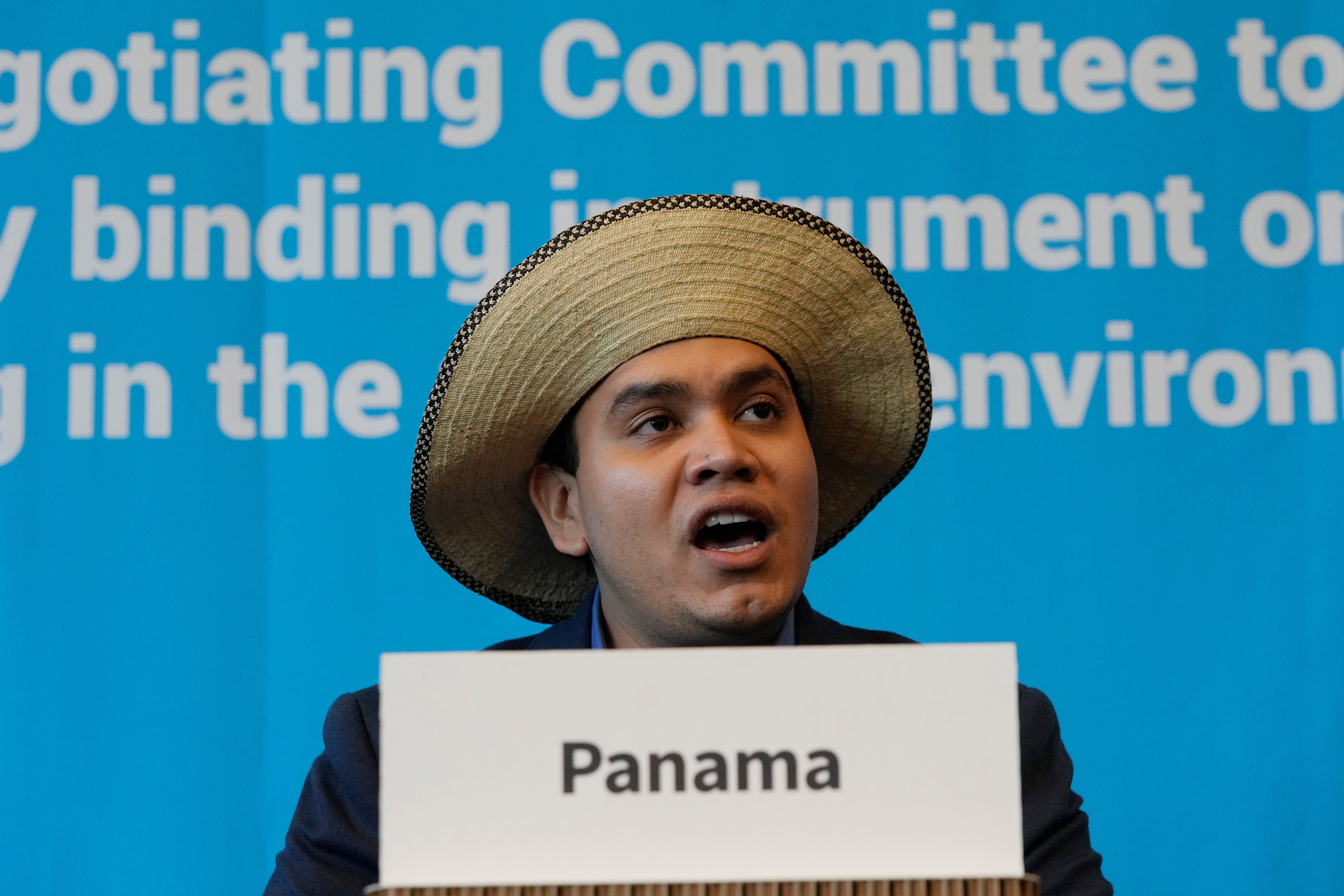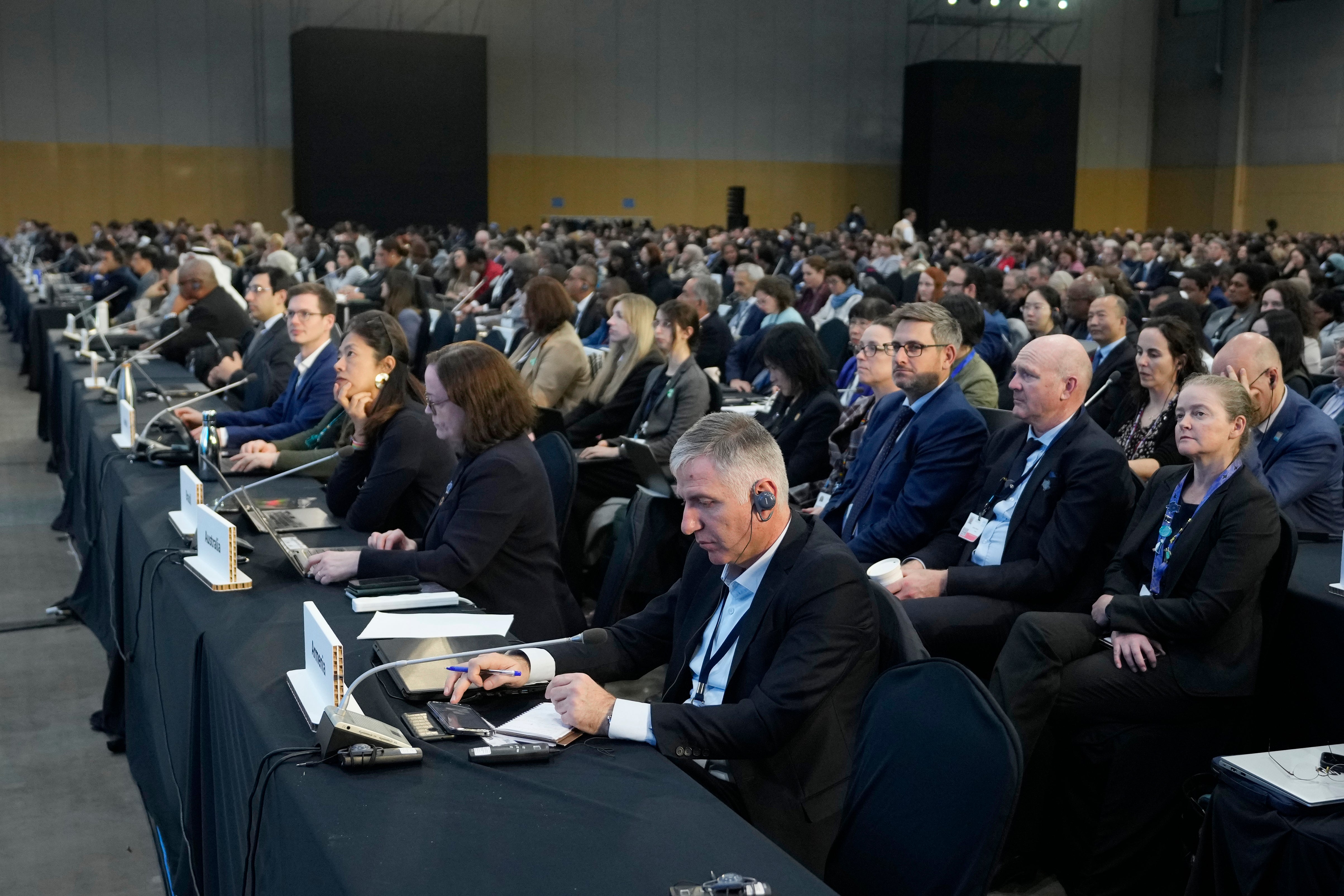a A week of tense negotiations to draft a legally binding treaty to combat global plastic pollution failed in Busan, South Korea, on Sunday night, ending disappointing results at the Cop29 and Cop16 biodiversity summits. This marks the latest setback for global environmental diplomacy.
The talks, which brought together around 200 countries under the United Nations Intergovernmental Negotiating Commission (INC-5), focused on important issues such as limits on plastic production, regulation of hazardous chemicals and financial mechanisms to support developing countries. The problem could not be resolved.
Countries most at risk from plastic pollution rejected the watered-down offer in the final hours, forcing negotiators to agree to a new meeting next year. “We did not and will never accept a weak treaty here,” Juan Carlos Monterrey Gómez of Panama said during the plenary session, drawing long applause from delegates.
The failure to reach an agreement in Busan adds to a series of recent disappointments in global environmental negotiations. At Cop29 in Azerbaijan in November, countries reached a last-minute agreement on $300 billion in climate finance, but this fell far short of the $1 trillion goal. Similarly, negotiations at Cop16 in Colombia in October stalled over unresolved gaps in biodiversity funding.
Despite high hopes and expectations for a strong agreement, the Busan negotiations began to stall early on. A week of slow progress, disagreements and the strong influence of fossil fuel lobbyists loomed over the boardroom at Busan’s vast BEXCO exhibition complex. Observers and negotiators soon began openly discussing roads beyond Busan, with many saying the negotiations were doomed to failure.
The draft treaty, released late Sunday ahead of the final plenary session, was heavy on brackets (the UN abbreviation for unresolved clauses). These included a range of options on some of the most important issues, such as constraining targets to reduce plastic production.
In practical terms, the brackets symbolized a failure to build consensus. Activists were visibly frustrated by this ambiguity, as it meant countries hardest hit by plastic pollution were left alone and without clear commitments.

Common Initiative director Aleksandar Rankovic said the situation in the final days of negotiations resembled “a ballroom where conflicting partners step on each other’s toes and even break each other’s knees.”
A group of countries known as the High Ambition Coalition (HAC) said agreement on key issues would not be possible in one day and called for another meeting before the final plenary session on Sunday.
“If you ask me… we will stop, modify the paper exactly and try another session,” said Sheikh Sila of Senegal. That would “give us time to bring our positions closer together and allow us to reach a balanced agreement…at this meeting.”
A major obstacle was the issue of production limits. More than 100 countries, including HAC member states, have promoted global goals to reduce plastic production and make it the centerpiece of a legally binding treaty. With plastic production set to triple by 2050, the treaty was based on what activists called “turning off the tap,” or stopping plastic production.
“A treaty that is not clearly legally binding is unacceptable,” Camila Zepeda, head of the Mexican delegation, said on behalf of 100 countries.
However, petrochemical producing countries like Saudi Arabia, along with allies known here as “like-minded countries”, strongly opposed these caps and argued for a focus on waste management instead. Several concerns were also at issue, including a just transition away from plastics and the historical responsibility of highly polluting countries to provide financing.

These countries were accused of holding the negotiation process “hostage”.
Eirik Lindebjerg, WWF’s Global Plastics Policy Leader, said: “It’s clear that these countries have no intention of finding meaningful solutions to this crisis, but this still prevents the vast majority of countries from finding solutions. I continue to do so.”
Greenpeace chief of mission Graham Forbes described the talks as “a marathon thwarted by the very industries responsible for the crisis”.
“What we saw in Busan was that a small number of countries were weaponizing the agreement in order to slow progress and undermine the negotiations,” said the Center for International Environmental Law (CIEL) Environmental Health. Director David Azoulay said. “We must resist the idea that this process is destined to remain paralyzed by interference.”
Some criticized the lack of political leadership. Mr Rankovic said some HAC countries were also “almost completely reticent to contact groups”.
“Such negotiations require involvement within the cabinet, not outside it,” Rankovic said, adding: “It is up to the ministers to find a compromise.”
The exclusivity of the talks also became a controversial issue. Meetings labeled “informal” were closed to civil society, NGOs, and indigenous groups. Campaigners said this ignored key voices in the Global South, which rely heavily on civil society, particularly for technical expertise and advocacy. independent person.
“This is the most exclusive INC I have ever attended,” Forbes said. “Fossil fuel lobbyists dominate the process while frontline communities are shut out.”
Björn Boehler, Executive Director of the International Pollutant Elimination Network (IPEN), said the exclusion of civil society unfairly disadvantages developing countries.
“When you remove actors with high ambitions, you lower the ambition of the conversation,” he said. independent person. “Countries in the Global South rely on NGOs for critical information and expertise. Blocking their access can effectively silence them.”
Financial support for developing countries remains a challenge, as do Cop29 and Cop16 talks. The Plastics Treaty was supposed to create a financing mechanism for the plastic-free transition. The document acknowledged the responsibility to pay polluters, but failed to provide such a framework.
At least 126 countries supported the creation of an independent and dedicated fund for the implementation of the treaty, funded by polymer production costs. However, the Chair’s draft contained only optional language and failed to establish a specific mechanism for funding.
“This is a matter of life and death for communities in the Global South,” said Arpita Bhagat, head of plastics at GAIA Asia Pacific. “The Chair’s text undermines this request and deprives countries of the resources they need to address the crisis.”
Another significant omission was binding measures to regulate hazardous chemicals. Plastics contain more than 3,000 chemicals, many of which pose serious risks to human health and the environment. Campaigners called for stronger regulations, but the draft law weakens provisions on this front.
“The draft law strips away systemic regulation of toxic chemicals,” Bieler said. “We see weak language despite the need for binding measures to eliminate these risks.”
Progress was further complicated by the agreement-driven nature of the negotiations. Unlike some multilateral agreements that allow voting, the Plastics Treaty negotiations relied on unanimous agreement. This gave a small group of petrochemical allies disproportionate power to block decisions. Senegalese delegate Cheikh Sila said excluding the vote was a “big mistake”.
Despite the failure in Busan, many believe the process can still be reversed. Lessons from other multilateral environmental agreements, such as the Rotterdam Convention and the Minamata Convention (on hazardous chemicals and mercury), show that deadlines can be extended without deviating from the end goal.
“This is a marathon, not a sprint,” Mexico’s Zepeda said, adding that participants were preparing to come back even stronger next year.
“We have a coalition of the willing, we have over 100 countries that want this. We can start working together on a way forward.”
“Panama left Busan with a fire in our hearts. We will come together again, but the risks will be higher, the devastation will be worse, and the opportunity to take action will be even greater. It will be smaller.”
But many say the process needs to change if this coalition is to succeed. Activists are calling for greater transparency, greater civil society participation and decision-making mechanisms that prevent the process from being held hostage by a few countries.







